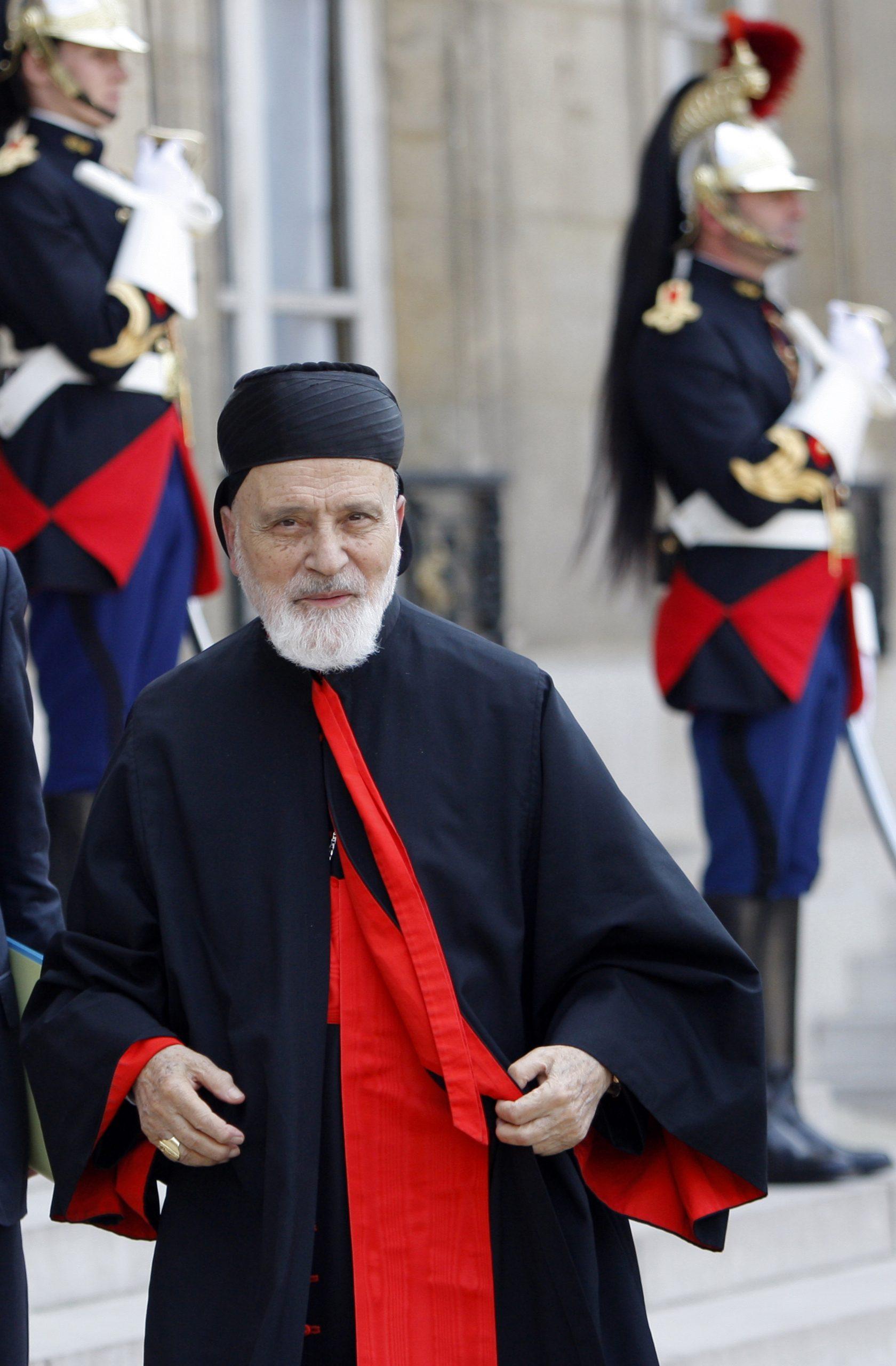BEIRUT — The former patriarch of Lebanon’s Maronite Christian church, Cardinal Nasrallah Butros Sfeir, who served as spiritual leader of Lebanon’s largest Christian community through some of the worst days of the country’s 1975-90 civil war, died Sunday. He was 98.
Sfeir, an outspoken and feisty personality who also played a key role in shaping the country’s post-war politics, died in a Beirut hospital two weeks after he was admitted suffering from a chest infection. His health deteriorated sharply as of Wednesday.
“The Maronite church is orphaned and Lebanon is in sadness,” the church said in a statement.
Cardinal Bechara Rai, who succeeded Sfeir in 2011, called on churches to ring their bells and hold prayers for the late leader, who would have turned 99 on Wednesday.
Lebanon has the largest percentage of Christians in the Middle East, a third of its 4 million people, with Maronite Catholics being the largest sect. Lebanon is the only Arab country with a Christian head of state.
Sfeir was one of the most prominent and high-ranking Christian leaders in the mostly Muslim Middle East region.
He is remembered mostly for spearheading an opposition movement calling for the withdrawal of thousands of Syrian forces from Lebanon in the 1990s, as well as for brokering a historic reconciliation in the Chouf mountains between Lebanon’s Maronites and members of the Druze sect in August 2001.
He then famously visited the Chouf mountains, scene of some of the worst sectarian massacres of the civil war, after brokering the reconciliation.
“Farewell to the patriarch of independence, reconciliation, love and peace,” Druze leader Walid Joumblatt, who worked out the reconciliation with Sfeir, tweeted Sunday.
Sfeir was born in the village of Rayfoun, north of Beirut, on May 15, 1920 and studied philosophy and theology at St. Joseph University in Beirut. After being ordained a priest in May 1950, he served for four years in his home parish, then in several other positions within the church before being ordained as a bishop in 1961. Over the next 25 years, he served as Patriarchal Vicar and Secretary to the Maronite Patriarchate.
In April 1986, he became the 76th patriarch of the Maronite Church, taking over a country in ashes at the height of its brutal 15-year civil war that killed around 150,000 people.
There was a mass protest by Maronites against Sfeir in November 1989 denouncing his support for the Taif Accord, which brought Lebanon’s civil war to an end the next year under Syrian supervision. Outraged supporters of then anti-Syrian general and prime minister, Michel Aoun, who opposed the accord, burned tires outside several churches and stormed the patriarchal residence, assaulting Sfeir and forcing him to kiss Aoun’s picture.
Aoun, now the president, said in a statement Sunday: “The national arena will miss him as a solid man in defending Lebanon’s sovereignty, independence and the dignity of its people.”
In the years after the civil war in the early 1990s, Sfeir stepped in to fill a leadership vacuum when the country’s defeated Christian political leaders were either in exile or imprisoned. He emerged as an outspoken critic of Syria’s military presence in Lebanon, which he called an occupation, and sponsored the so-called Kornet Chehwan gathering, a coalition of Christian politicians and intellectuals that lobbied against Syria’s heavy-handed presence in Lebanon.
In 2001 he embarked on a tour of the United States and Canada, campaigning for assistance against Syria.
Syrian troops withdrew from Lebanon in 2005 two months after the assassination of former Lebanese Prime Minister Rafik Hariri, which had led to widespread anti-Syrian protests.
In early 2011, Sfeir resigned from his post saying he wanted to spend his time in prayers and meditation.
Sfeir’s family is expected to announce funeral plans later in the day.
Associated Press writer Bassem Mroue in Beirut contributed to this report.












